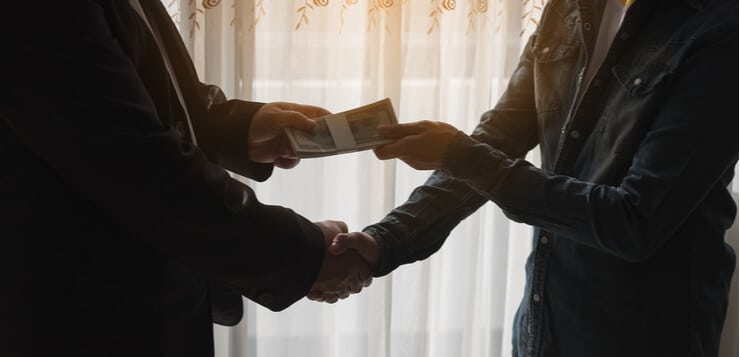How to ensure the integrity of sports betting — particularly with lesser-known competition acquiring new prominence in the COVID-19 era — became a central topic for operators and consultants involved in SBC Digital Summit panel discussions Wednesday.
The issue had special prominence in light of action last week by regulators in various states, including Pennsylvania, to shut down legal wagering on Ukrainian table tennis events due to match-fixing concerns.
Table tennis matches thousands of miles from the U.S. drew unprecedented wagering action in recent months following the shutdown of nearly all American sports. While Pennsylvania’s online sportsbooks are currently offering odds on table tennis from Russia, similar events in Ukraine are not available as a result of a Pennsylvania Gaming Control Board order July 8.
ESPN reported that the Sports Wagering Integrity Monitoring Association (SWIMA) raised the initial concerns to regulators last week about possible match-fixing in Ukraine, leading to the suspensions in multiple states.
Obscure sports can carry more liability
Paris Smith, CEO of Pinnacle, an online international sportsbook that is not permitted to operate in the U.S., said her company was one of the many that saw increased table tennis betting in the spring, after making it more available to bettors because there was so little else to offer.
And now, it has also stopped taking bets relating to the sport in Ukraine, she said. There is no similarity between the confidence level in a niche sport like table tennis vs. regular tennis, Smith noted.
“We could see where we would take it down [off the betting board] and others were still offering it,” she said. “It was such a non-complement to any organization that focuses on integrity and puts integrity at the top of its priorities.”
Smith pointed out that while table tennis betting soared for Pinnacle in April and May, that volume fell sharply with the return of top-level European soccer in June and July.
Bryan Bennett, COO of Betfred USA Sports, which is preparing to enter the Pennsylvania market through a partnership with Wind Creek Bethlehem casino, said the return of U.S. sports like the PGA Tour and NASCAR also diminishes reliance on sports such as table tennis.
By the time Betfred USA is operating in Pennsylvania it hopes to also be taking bets on the NBA, MLB, NHL, and NFL.
“People want to bet on sports they know — they don’t necessarily want to bet on Ukrainian table tennis,” Bennett noted. “As other sports come back, it becomes even more of a distant option.”
Amateurs may be bigger risk than pros
Smith and Bennett were among online panel participants in an SBC Digital Summit webcast concerning sportsbooks, while another session focused on match-fixing concerns and vigilance within the industry.
Participants in the latter did not focus on the table tennis case specifically, but talked about how lower-level sports and amateur competition — notably collegiate athletics — are where vigilance is of greater necessity than the major U.S. professional sports that have so many people watching. Most of America’s recent sports betting scandals revolved around collegiate sports rather than pro.
“Of course, the young athletes, but primarily the unpaid athletes, are the ones that are susceptible. … I challenge anyone to look at professional sports in America for any improprieties involving U.S. professional athletes,” said Art Manteris, a longtime Nevada sportsbook executive who is now vice president of sports and race operations for Station Casinos.
He said he believes the Nevada sportsbook industry and its regulators have long been successful in rooting out any taint of scandal involving game fixes and betting.
With legalized sports wagers now spreading in state after state, however, there is a wider set of eyes involved, such as the collective SWIMA and a company like U.S. Integrity, which contracts with operators to help identify suspicious betting patterns.
Matthew Holt, president of U.S. Integrity, said American bettors normally have collegiate sports to wager on when the major professional leagues are not in action, but that has not been possible during the COVID-era shutdowns of sports. That has prompted the rise of betting volume for niche sports like table tennis or lower-level international soccer or baseball leagues that don’t necessarily have a high degree of oversight and assurances of integrity.
Based on past cases of sports betting corruption, Holt noted, it doesn’t take much money to entice a young athlete to cross a line. Collegiate athletes caught up in such arrangements typically receive no more than a few thousand dollars, even if someone betting based on their participation might get rich.
“What’s interesting is the myth that it takes millions of dollars and is this huge scheme,” Holt said. “Young athletes are being taken advantage of for what we would consider putridly small amounts of money.”
Collaborative vigilance deemed essential
Panelists agreed it takes a collaborative effort among operators, regulators, leagues, and law enforcement to head off such corruption.
It’s an issue all the more important, said George Rover of SWIMA, in times such as the present, when sportsbooks appeal to their state regulators to allow them more betting options due to the shutdown of pro sports.
It creates pressure to speed up the approval process for events traditionally subject to less scrutiny, Rover said, and there’s incentive to do so in order to steer bettors away from illegal options and help operators make revenue in difficult times.
Questions about how that all works out are bound to continue with the ongoing uncertainty about the ability of major U.S. sports to get back on track with anything resembling the normal competition that appeals to bettors.
“We have these competing interests. … It’s a healthy tension,” Rover said. “And if there’s not college and pro football, there’s going to be even more tension, because operators will say to regulators, ‘Here’s more events we want you to approve.’”
Photo provided by Shutterstock






